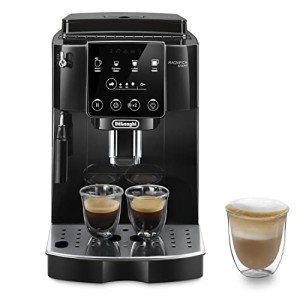Bean To Cup Espresso Coffee Machine: The Ultimate Guide
Over the last few years, the coffee culture has experienced a substantial improvement, with the rise of home brewing gadgets supplying convenience and quality equivalent to coffee shop offerings. Amongst these devices, the Bean to Cup Espresso Coffee Machine stands out as a favorite among coffee connoisseurs and casual drinkers alike. This comprehensive guide explores what these machines are, how they operate, the advantages they offer, and elements to think about when picking the best one.
What is a Bean to Cup Espresso Coffee Machine?
A Bean to Cup Espresso Coffee Machine is an innovative coffee brewing device that grinds coffee beans fresh for each cup, automating the entire espresso-making process. These machines generally include built-in mills, integrated milk frothers, and precise developing technology, permitting users to create high-quality espressos, lattes, coffees, and more, all from the convenience of their homes. The convenience, matched with the abundant and robust flavors produced, has actually made these machines significantly popular.
How Does It Work?
The standard operation of a Bean to Cup Espresso Coffee Machine can be broken down into numerous essential actions:
Bean Grinding
- The machine grinds whole coffee beans immediately before brewing, ensuring optimum freshness and flavor retention.
Developing
- Ground coffee is packed into a filter, and warm water is required through the coffee grounds at high pressure, which is necessary for producing espresso.
Frothing (Optional)
- Many designs include a steam wand or milk frother for preparing frothed milk for lattes and coffees.
Serving
- The last involves giving the brewed coffee into a cup, frequently with programmable features for customization.
Advantages of Bean to Cup Espresso Machines
Investing in a Bean to Cup Espresso Coffee Machine provides numerous benefits, adding to its growing popularity.
| Advantage | Description |
|---|---|
| Convenience | One-touch operation minimizes the time and effort needed to prepare coffee. |
| Quality | Freshly ground beans lead to a richer, more flavorful drink compared to pre-ground options. |
| Personalization | Users can adjust settings to suit individual preferences, consisting of grind size, coffee strength, and milk froth levels. |
| Affordable | Although the initial investment may be high, cost savings on coffee purchases from cafés can be substantial gradually. |
| Flexibility | The ability to brew different coffee types, from espresso to cappuccino, expands the machine's appeal. |
Secret Features to Look For
When picking a Bean to Cup Espresso Coffee Machine, various functions can influence the purchase choice. Below are essential factors to consider:
Grinder Type
- Burr grinders are preferred over blade mills for their constant grind size.
Developing Pressure
- Look for machines that use a minimum of 15 bars of pressure for optimal espresso extraction.
Milk Frother
- Select in between manual steam wands or automatic milk frothers based on choices for milk texture and foam.
User Interface
- An user-friendly control panel with programmable settings enhances the general experience.
Size and Design
- Think about the counter top area offered and choose a style that matches your cooking area aesthetics.
Upkeep Options
- Some machines provide automatic cleaning cycles, which can conserve effort and time in upkeep.
Popular Bean to Cup Espresso Machines
Picking a machine that fits one's requirements can be tough. Below is a list of popular models, known for their dependability and efficiency.
| Design | Key Features | Rate Range |
|---|---|---|
| De'Longhi Magnifica ESAM3300 | Adjustable coffee strength, compact design | ₤ 550 - ₤ 700 |
| Breville Barista Touch | Touchscreen controls, integrated cone-shaped burr mill | ₤ 800 - ₤ 1,150 |
| Saeco PicoBaristo | Automatic milk frother, 12 coffee specialties | ₤ 900 - ₤ 1,300 |
| Jura E8 | Pulse Extraction Process, Alexa Compatible | ₤ 1,800 - ₤ 2,500 |
| Gaggia Anima | Easy to clean, programmable settings | ₤ 500 - ₤ 800 |
Upkeep Tips
Keeping a Bean to Cup Espresso Coffee Machine in excellent condition is important for making sure durability and optimum efficiency. Here are some upkeep pointers:
- Regular Cleaning: Clean the machine's parts frequently, consisting of the drip tray, coffee premises container, and water tank.
- Descaling: Perform descaling every few months based on water solidity and usage to avoid mineral buildup.
- Change Water Filter: If the machine has a water filtering system, alter the filter as advised.
- Inspect Seals and Gaskets: Check for wear and tear to avoid leaks and make sure correct pressure throughout developing.
FAQs
1. Are Bean to Cup Espresso Machines easy to use?Yes, the majority of models are designed for user benefit with simple control board and one-touch operation. 2. Can straight from the source use pre-ground coffee in these machines?While some machines permit using pre-ground coffee, the primary benefit depends on using whole beans for fresh grinding. 3. How typically ought to I clean my Bean to Cup machine?Regular maintenance is key; daily cleaning of removable parts and descaling every 2-3 months are typically advised. 4. What is the typical
lifespan of a Bean to Cup Espresso Coffee Machine?With appropriate upkeep, these machines can last anywhere from 5 to 15 years based upon use quality
. 5. Are these machines worth the investment?Though they can be pricey, the convenience, quality coffee production, and long-lasting cost savings make them a worthy investment for numerous coffee lovers. Buying a Bean to Cup
Espresso Coffee Machine can considerably boost the home
coffee experience. By providing newly brewed, high-quality coffee, these machines cater to the growing need for café-style drinks in the comfort of one's cooking area. With many alternatives on the marketplace, comprehending functions and individual preferences will assist in choosing the ideal machine to fit any coffee fan's requirements.

